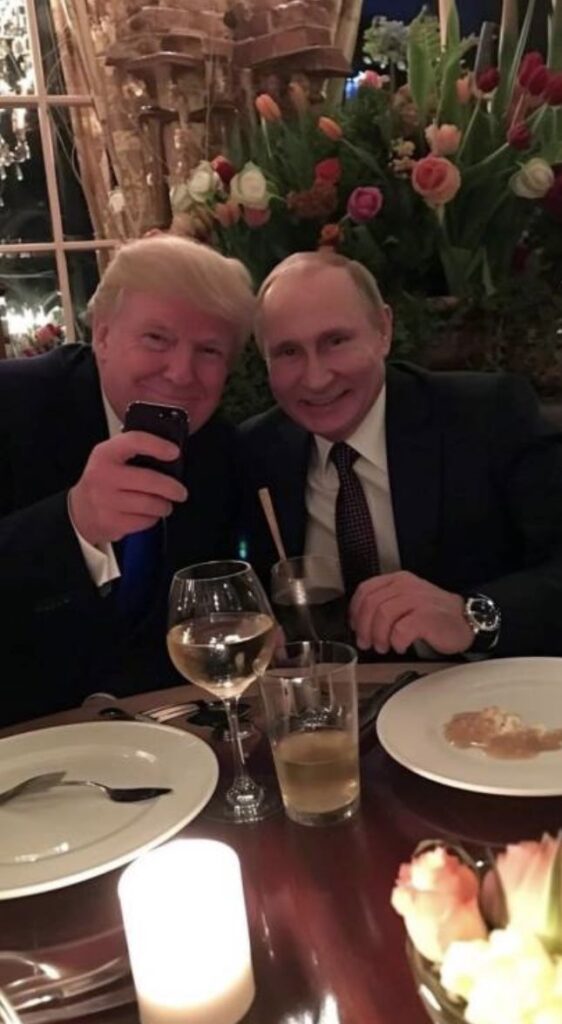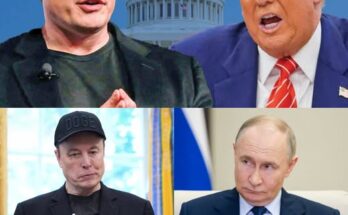
The relationship between Vladimir Putin and Donald Trump has been a focal point of international discourse, influencing geopolitical dynamics and shaping global policies. Their interactions, both direct and indirect, have been scrutinized for implications on international relations, national security, and the global balance of power
Early Interactions and Allegations
The origins of the Putin-Trump relationship trace back to the 2016 U.S. presidential election. Allegations surfaced regarding Russian interference aimed at bolstering Trump’s candidacy. Leaked Kremlin documents, known as the “Kremlin papers,” suggested that Russia sought to support Trump’s election to destabilize the United States. These documents described Trump as an “impulsive, mentally unstable and unbalanced individual” suffering from an “inferiority complex,” recommending the use of “all possible force” to facilitate his election. The papers also alluded to the existence of compromising material (kompromat) on Trump, purportedly collected during his visits to Russia.
In response to these allegations, the BBC’s Panorama aired a documentary titled “Trump: The Kremlin Candidate?” in January 2017. The film examined potential links between Trump associates and Russian officials, exploring whether Russian intelligence possessed compromising material on Trump. The documentary also delved into Russian interference in the 2016 U.S. elections and the possible implications for global security.
Presidential Tenure and Policies
During Trump’s presidency (2017–2021), his approach to Russia contrasted with traditional U.S. foreign policy. Trump often expressed admiration for Putin, calling him a “strong leader.” This stance led to bipartisan concerns about potential concessions to Russia.
One notable incident was the 2018 Helsinki Summit, where Trump appeared to side with Putin over U.S. intelligence agencies regarding Russian interference in the 2016 election. This stance drew criticism from both domestic and international observers, raising questions about the nature of their relationship.
Post-Presidency Developments
After leaving office, Trump’s interactions with Putin continued to attract attention. In February 2025, reports emerged of a 90-minute phone call between Trump and Putin, signaling a potential thaw in U.S.-Russia relations. Media outlets noted that this conversation, along with statements about European NATO members bearing their own military expenses, marked a significant shift in American-European relations. The Washington Post emphasized that the interests of European countries in the geopolitical defense space were fading into the background
The call also raised concerns among European allies, particularly regarding Ukraine. The Guardian reported that the rapid initiation of negotiations with Russia and open demands for Ukraine to cede territory caused alarm in Kyiv and among Ukraine’s European allies. There were fears that the Trump administration might make significant concessions to Putin’s demands to secure a quick deal.
Ideological Alignments and Global Implications
The ideological alignment between Putin and Trump has been a subject of analysis. An article in The Atlantic discussed the evolution and impact of Putin’s leadership, emphasizing that he is not merely a transactional leader but an ideologue with a clear vision. The piece highlighted Putin’s journey from an accidental leader to a global influencer propagating illiberal nationalism and conservative values. The article also examined Putin’s influence beyond Russia, highlighting his support and ideological alignment with various far-right and illiberal leaders in Europe and the United States. The resurgence and adaptation of this ideology within the U.S. under Trump, who shares many of Putin’s autocratic and nationalistic viewpoints, were noted as key aspects of Putinism’s ideological advancement.
Economic Sanctions and Policy Shifts
Economic sanctions have been a pivotal aspect of U.S.-Russia relations. Edward Fishman’s book, “Chokepoints,” explores U.S. economic warfare, especially the use of sanctions against countries like Russia. The book highlights the U.S. dollar’s role in global finance, aiding American political strategy. Fishman recalls Trump’s inconsistent sanctions strategy, citing a 2018 incident involving Russian oligarch Oleg Deripaska, where Trump quickly rescinded sanctions under pressure, signaling weakness to Russia. The book underscores the strategic importance of sanctions and tariffs but also warns against economic nationalism and its potential to lead to military conflict if economic interdependence erodes.
Nuclear Concerns
Nuclear weapons have been a recurring topic in discussions involving Trump and Putin. In a recent interview, Trump issued a stark warning about the potential end-of-world threat posed by “monster” nuclear weapons amidst escalating global tensions. He emphasized the catastrophic consequences of nuclear war, mentioning the vast arsenals of the U.S. and Russia, and China’s rapid nuclear expansion. Trump’s comments highlight the urgency of addressing nuclear threats over other global issues.
European Political Dynamics
The Putin-Trump dynamic has also influenced European politics. An article in El País discussed Germany’s recent elections, noting that Trump’s support for the German far-right party, Alternative for Germany (AfD), and his threats to NATO allies have impacted the political landscape. The piece highlighted the challenges faced by Friedrich Merz, leader of the Christian Democratic Union (CDU), in forming a stable coalition and addressing foreign policy concerns amidst the shifting global order influenced by Putin and Trump’s actions.
Conclusion
The relationship between Vladimir Putin and Donald Trump has been complex, characterized by mutual admiration, ideological alignments, and controversial interactions. Their association has had profound implications for international relations, influencing policies on economic sanctions, military alliances, and global security. As both leaders continue to play significant roles on the world stage, understanding the nuances of their relationship remains crucial for comprehending contemporary geopolitical dynamics


